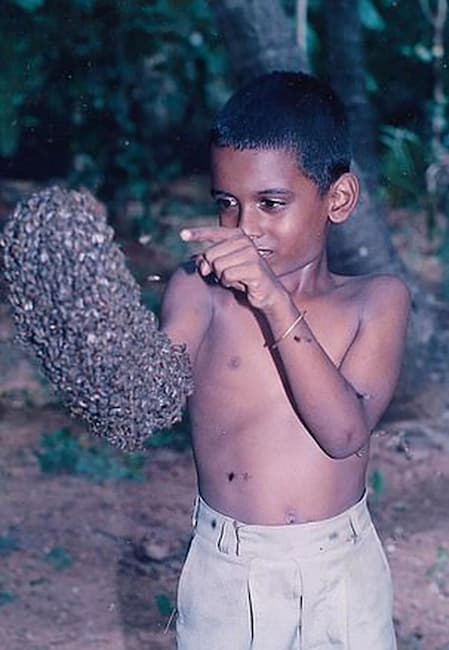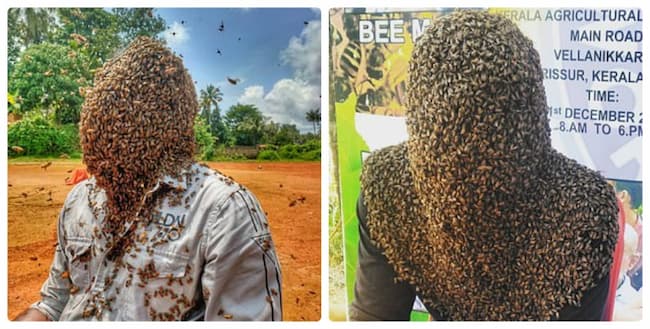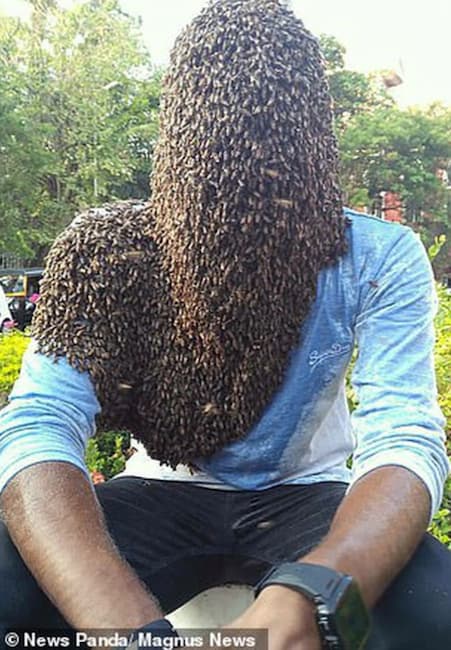Called by the locals as the “master of nature,” this young man considers bees as his close friends.
The Indian man, known as Nature M.S, sees bees as his “close friends” and claims that he never sees them as a threat. Being a beekeeper, Nature M.S often allows thousands of bees to cling onto his face.

He has been keeping bees on his face since he was 7 years old and uses them to scare his peers. The “master of nature” also holds the Guinness World Record for having the most bees on his face – 60,000 bees, for the longest duration: 4 hours, 10 minutes, and 5 seconds. This Indian youth claims that he can still move around normally, even with tens of thousands of bees covering his face.

Having a strong bond with bees since childhood, Nature M.S reveals that he started raising them at the age of 7 because his father was a renowned beekeeper in the region. Despite being stung by bees in his eyes or lips, it never made this young man afraid or discouraged.
“Since I was a child, I used to visit the bee farm with my father, and one day, he told me to hold a bee in my hand, that’s when I started to love this small insect,” he recalls. “After a month, he told me to place one on my face, and that’s how this journey began.”

Initially, Nature felt strange, but later on, he became comfortable with bees crawling on his face. He trained for one hour and gradually increased the time, and now he can sit with bees covering his face for over 4 hours.
The emotional bond with bees since childhood has driven Nature M.S to pursue academic studies and research in beekeeping and pursue a master’s degree at a university in Bangalore, India. In the future, he aspires to become a Ph.D. in this field to protect bees.

“Since the first contact with them, I felt a strong connection. It seems like we have a special bond,” he shares. “Bees are my best friends, and I wish others could also befriend them. Bees are very beneficial insects for nature. We should protect them. Without bees, we cannot produce colorful flowers to sustain human life.”

